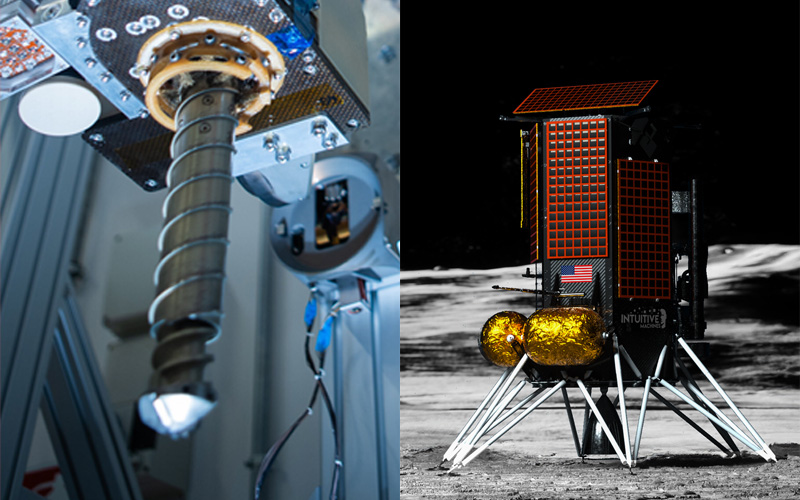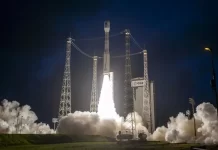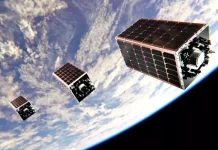
NASA has awarded Intuitive Machines a $116.9 million contract to carry six payloads to the surface of the Moon aboard its Nova-C lunar lander. One of the six payloads aboard the lander will be the European Prospect payload, which will drill into a lunar surface to search for water deposits.
In January 2020, the European Space Agency awarded Leonardo a €31.5 million contract to develop the drill and miniaturized scientific laboratory for its Prospect mission. At the time, the drill and lab were slated to be carried aboard the Russian Lunar-27 mission to the Moon in 2025.
The 45-kilogram Package for Resource Observation and in-Situ Prospecting for Exploration, Commercial exploitation, and Transportation (Prospect) payload consists of two main elements.
Samples will be extracted from a depth of around 1 metre by the ProSEED drilling system, which was developed by Italian space company Leonardo. The samples will then be carried to the ProSPA mini lab for processing. The Open University in the UK was responsible for developing this element of the Prospect payload. ProSPA itself is split into two main elements.
The ProSPA SIS system will receive, image, seal, and heat the samples. The eight-kilogram ProSPA lab will then analyze the gas released by the samples.
“After more than a decade of developing the ProSPA concept and instrument, our team is super-excited to be hitching a ride to the Moon,” said Simeon Barber, ProSPA project lead at The Open University. “We look forward to analyzing fresh samples which might contain ancient reserves of water and other ices.”
ESA aims to collect and analyze around 15 samples collected from beneath the lunar surface. This will, however, depend on how much time it will take to acquire and analyze each sample on the inhospitable surface of Earth’s Moon.
The primary aim of the mission is to search for the presence of volatiles beneath the lunar surface. Volatiles are chemical components, such as water, that easily evaporate under specific conditions.




